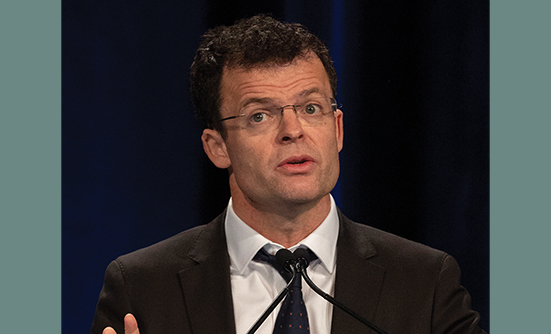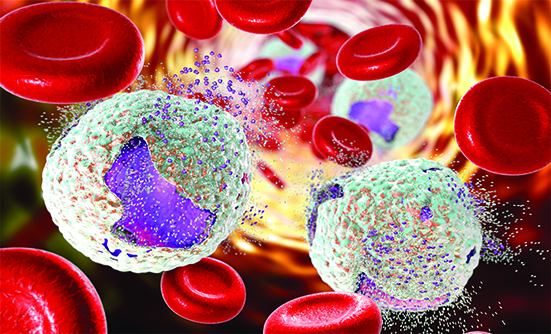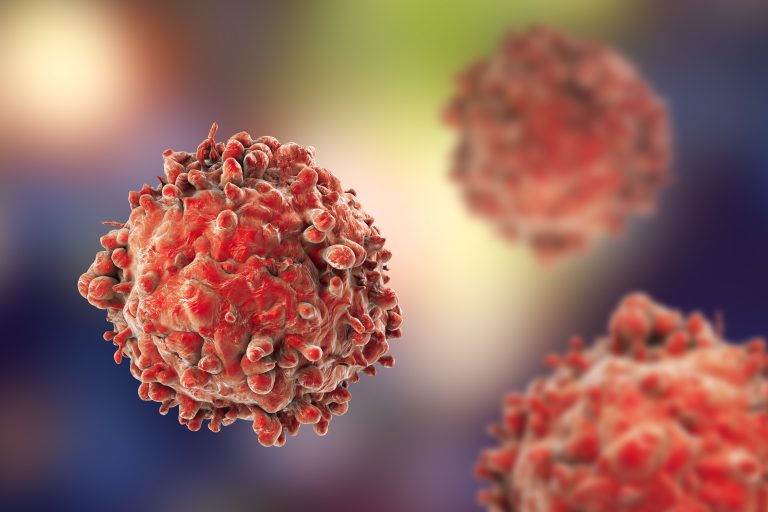ASCO 2020 Highlights

Maintenance Treatment with Bavencio a New Standard of Care for Patients with Advanced Bladder Cancer
By Phoebe Starr
Interim analysis of the phase 3 JAVELIN Bladder 100 trial showed that maintenance therapy with the PD-L1 inhibitor Bavencio (avelumab) plus best supportive care significantly prolonged survival compared with the current best supportive care alone in patients with advanced urothelial carcinoma, the most common type of bladder cancer, that did not progress (get worse) after treatment with first-line platinum-based chemotherapy. Read More ›
By Chase Doyle
This article reviews the promising findings presented at the 2020 ASCO meeting showing that treatment with the immunotherapy Libtayo may reduce pain and improve survival without disease progression in patients with advanced cutaneous squamous-cell carcinoma, or skin cancer. Read More ›
By Chase Doyle
New results presented at the 2020 ASCO annual meeting show that patients with advanced or metastatic (spreading) cutaneous squamous-cell carcinoma (CSCC) who received the PD-1 inhibitor Libtayo (cemiplimab) lived much longer than patients who did not receive this PD-1 inhibitor. Read More ›
Results of a new study showed that the combination of Cabometyx (cabozantinib) and the immune checkpoint inhibitor Tecentriq (atezolizumab) was safe and effective in men with metastatic (spreading) castration-resistant prostate cancer, the most common type of prostate cancer. Read More ›
The PARP inhibitor Lynparza (olaparib), a type of drug that is usually used for the treatment of women with ovarian cancer, has also been studied in men with prostate cancer. The results of the PROfound clinical trial were recently presented at the 2020 ASCO annual meeting by Antoine Thiery-Vuillemin, MD, PhD, Centre Hospitalier de Besançon, France. Read More ›
By Wayne Kuznar
The follow-up results of more than 5 years of the multicenter phase 3 SOLO2 clinical trial of women with ovarian cancer were presented at the 2020 ASCO annual meeting, showing improved survival with the use of Lynparza (olaparib) compared with placebo. Read More ›
By Chase Doyle
In patients with newly diagnosed multiple myeloma, the use of the 3-drug combination of Kyprolis (carfilzomib), Revlimid (lenalidomide), and dexamethasone for first-line therapy does not improve outcomes compared with the 3-drug combination of Velcade (bortezomib), lenalidomide, and dexamethasone, which is the current standard of care for this patient population. Read More ›
By Chase Doyle
Cell-based therapy is becoming an attractive option for the treatment of patients with relapsed (coming back) or refractory (does not respond to therapy) multiple myeloma who have received many therapies before. Read More ›
By Wayne Kuznar
Several immunotherapies known as immune checkpoint inhibitors are available today for patients with melanoma, as well as targeted therapies for patients with a BRAF or MEK gene mutation, but there are no effective treatments approved for patients with metastatic (spreading) or nonresectable (cannot be removed by surgery) melanoma whose disease progressed (got worse) after using an immune checkpoint inhibitor, or a BRAF or MEK inhibitor for those with gene mutations. Read More ›
By Phoebe Starr
Treatment with the PD-1 inhibitor Keytruda (permbrolizumab) significantly extended progression-free survival (PFS) in patients with classical Hodgkin lymphoma compared with standard treatment with Adcetris (brentuximab vedotin), according to the results of the phase 3 KEYNOTE-204 clinical trial reported at the ASCO 2020 virtual annual meeting. Read More ›














